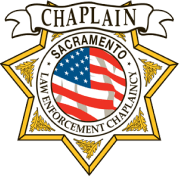A History of the Law Enforcement Chaplaincy
In 1975 a group calling themselves an ad hoc committee for development of a “Greater Sacramento Police Chaplaincy” met to discuss the feasibility of founding such an organization. The intent of the organization would be to provide ministry for police families in times of personal crises. The members — pastors, businessmen, and two department representatives — saw a great need in law enforcement going unmet. There were no employee assistance programs, peer support groups, or specialized help in law enforcement. The members of this group were Harold Ungland, George Scripture, John Block, Harry Straite, Dwight Burchett, Lee Toms, Bill Bailey, and Bruce Thayer.
This group began looking for a chaplain. While the search was on, two members of the committee, Bill Bailey and Bruce Thayer, recruited two officers and formed the Christian Centurion Quartet. The quartet traveled from church to church sharing the vision for this special ministry.
In 1977 the Law Enforcement Chaplaincy was first incorporated as the Greater Sacramento Police Chaplaincy. Gary and Bonnie Benjestorf were called to the ministry and arrived just prior to June 1. Gary’s background as deputy sheriff and pastor seemed ideal. The effort was kicked off with a luncheon at First Baptist Church and was the beginning of what was to be an annual event for many years.
A house was donated for the Benjestorf’s living quarters by First Baptist Church (24th & L) and a car was loaned by Snider Volkswagen. There was $300.00 in the chaplaincy checking account and lots of faith in the hearts of the Board and the Benjestorfs.
The first year was active in work but little ministry. The natural strong walls that keep
“outsiders” out of the police world were strengthened by a recently departed psychologist who, after winning the confidence of officers, wrote a book about their sex lives.
By the end of the first year, the Benjestorfs almost believed that they had made a mistake, yet three things held them firm: their faith in God, their confidence in the Board’s will to succeed, and the nature of police officers.
